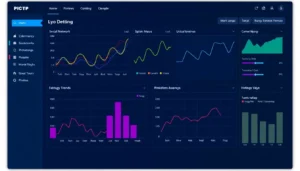Mastering Project Topics: Strategies to Find the Perfect Research Ideas for Your Studies

Embarking on academic research is a significant milestone in a student’s educational journey. One of the most critical steps in this process is selecting an appropriate project topics. Well-chosen topics not only serve as the foundation for your research but also influence your academic performance, future opportunities, and professional reputation. In this comprehensive guide, we will explore the importance of project topics, effective strategies to identify the perfect research ideas, essential criteria to consider, and practical tips to implement your chosen topic successfully.
Understanding the Significance of Project Topics in Academic Success
The Role of Project Topics in Your Final Year
The final year of any academic program culminates in a significant project that demonstrates your mastery of the subject matter. The project topic acts as a blueprint, guiding your research directions and methodology. An appropriately selected topic reflects your interests, showcases your skills, and aligns with your career aspirations. It influences the depth and breadth of your research, the feasibility of data collection, and ultimately, the quality of your submission.
How Well-Chosen Topics Impact Research Quality
Choosing an engaging and pertinent project topic directly affects the overall quality of your research. A relevant topic ensures access to adequate data, supports comprehensive literature review, and fosters meaningful analysis. Conversely, selecting a vague or overly broad topic can lead to difficulties in data collection, lack of focus, and subpar results. Research quality hinges on clarity, scope, and originality—attributes rooted in a well-selected project topic.
Common Challenges in Selecting Suitable Project Topics
Students often face obstacles such as limited access to data, lack of originality, or misalignment with academic goals. Tight deadlines and peer pressure might lead to choosing topics that are either too ambitious or irrelevant. Additionally, sometimes students struggle to balance their interests with academic requirements. Recognizing these challenges early enables strategic planning and targeted efforts to find and refine suitable project ideas.
Step-by-Step Approach to Finding Effective Project Topics
Identifying Your Interests and Academic Goals
Begin by introspecting on your passions within your field. Consider questions like: What areas excite you? Which topics align with your career objectives? Create a list of broad themes before narrowing down into specific research questions. For instance, a student interested in information technology might explore cybersecurity, software development, or data analysis. Clarifying your goals ensures sustained motivation and relevance throughout your research journey.
Conducting Preliminary Research and Brainstorming
Once you have identified your interests, conduct an initial literature review to understand existing research and identify gaps. Use academic databases, journals, and online repositories to browse trending topics and recent studies. Brainstorm innovative ideas, formulate potential research questions, and evaluate their feasibility. Conducting preliminary research helps you spot current trends, avoid duplication, and set realistic objectives.
Utilizing Online Resources and Competitor Insights
Leverage online platforms like ResearchWap to access a wide array of project topics and materials across disciplines. Review top-rated projects, case studies, and recent blog posts to inspire new ideas. Analyzing competitor content and examining what topics are trending within your academic community can reveal gaps you may fill or angles to explore. Industry reports and expert opinions further enrich your understanding and guide topic selection.
Criteria for Selecting the Best Project Topics
Relevance to Your Field of Study
A paramount consideration is ensuring your topic aligns with your academic program. Relevance guarantees access to appropriate resources and demonstrates your understanding of core subject areas. For example, a computer science student should focus on programming, algorithms, or systems rather than unrelated fields like marketing unless cross-disciplinary research is justified.
Availability of Research Materials and Data
Assess whether sufficient research materials, data sources, and literature are available. This factor impacts the depth of your analysis and the chances of successful data collection. Choose topics where data is accessible, whether through surveys, experiments, or secondary sources, to ensure the feasibility of your project.
Potential for Innovation and Originality
Aim for topics that contribute new insights or perspectives to existing knowledge. Originality enhances the impact of your research and increases your chances of publication or recognition. Consider unexplored angles, emerging technologies, or local issues in your region to craft innovative research questions that stand out.
Tools and Resources to Generate and Validate Project Topics
Online Topic Generators and Academic Platforms
Several online tools and platforms can assist in generating ideas. Websites such as ResearchWap host comprehensive repositories of verified project topics and materials. These resources often include sample projects, proposals, and literature reviews, streamlining your selection process.
Consulting with Supervisors and Industry Experts
Engage your academic supervisors, industry professionals, or alumni for feedback on your proposed topics. Their insights can help refine your focus, ensure relevance, and align your research with industry trends. Building this network also opens opportunities for mentorship and collaborations.
Leveraging Competitor and Industry Research Insights
Study recent research projects, industry reports, and scholarly articles to identify current gaps and challenges. This practice informs your decision-making, helping you select relevant, innovative, and impactful topics with a higher likelihood of contributing meaningfully to your field.
Implementing Your Chosen Project Topic for Success
Structured Planning and Proposal Development
Once a topic is finalized, develop a detailed research proposal. Outline your objectives, hypotheses, methodologies, and expected outcomes. A well-structured proposal guides your workflow, facilitates approval, and sets a clear path forward.
Effective Management of Resources and Timeline
Create a realistic timeline, allocate resources efficiently, and set milestones. Incorporate buffer periods for unforeseen challenges. Effective time and resource management are critical for completing your project on schedule and maintaining quality.
Reviewing and Refining Your Research Focus
Regularly review your progress and seek feedback from supervisors or peers. Be prepared to refine or pivot your research questions based on preliminary findings, data availability, or emerging insights. Flexibility ensures your project remains relevant and achievable.







